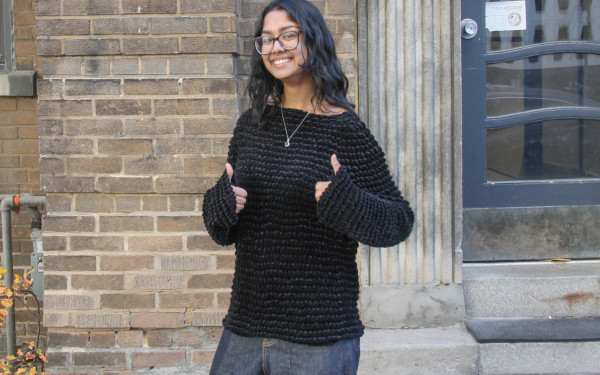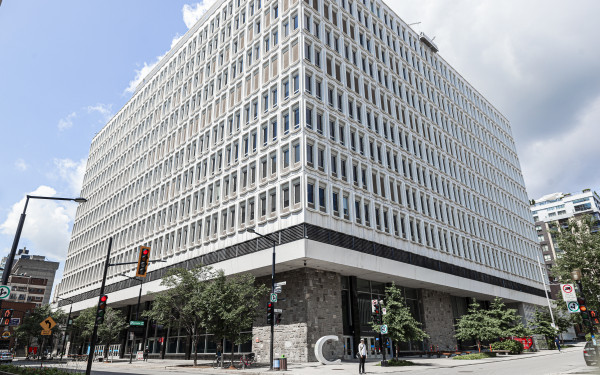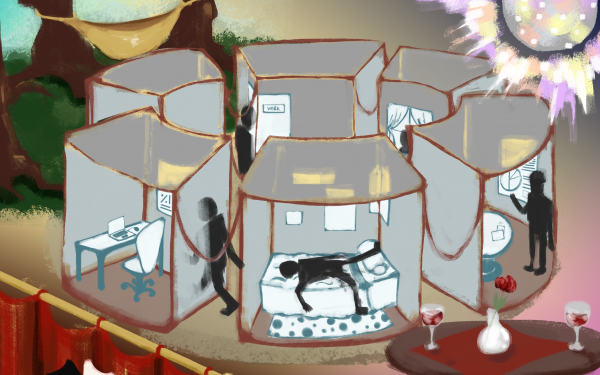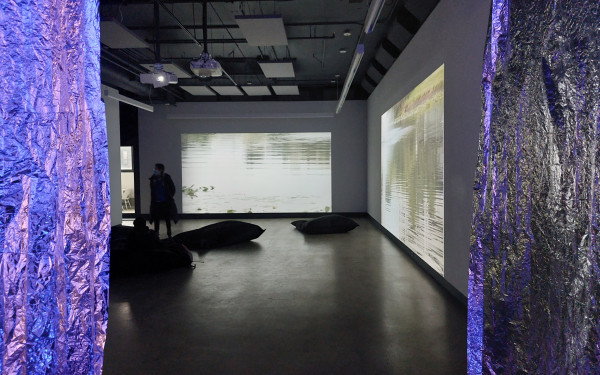Ónen ki’ wáhi Concordia
This column by editor-in-chief of The Eastern Door and former Concordia journalism professor Steve Bonspiel was originally published on Jan. 5. The Link was given permission to print it to inform the Concordia community of the situation.
After a year as journalist-in-residence, another year to develop the curriculum for Indigenous Journalism, and five years teaching the course, my time with Concordia University has come to an end.
It’s not by my own design or choosing, but the university’s “revamping” of Indigenous Journalism—a level-four, three-credit course that I invented, wrote, taught, and loved.
I made time for it because I believe in teaching students about our realities, especially non-Natives—you know, the ones who will eventually be working for CTV, CBC, and others—and they need to be sensitized to our issues.
Concordia decided to put out a call in October for someone to oversee the Indigenous Journalism program for fall 2024, which I guess means it’s expanding from the single course that I created into something much bigger.
The problem is, they didn’t tell me about it until an email from Andrea Hunter, Concordia University’s new chair of journalism, claiming only one person applied for my class, therefore it was cancelled for winter 2024—a few months before class would have started.
I was baffled. I always had at least 10 students, with a small waiting list, and now, all of a sudden, one person applied? Something smelled fishy, so I asked for a meeting with her.
Sure enough, that wasn’t the whole story. Although I couldn’t confirm if the single application was truth or not, I found out they were, behind the scenes, reworking the whole thing. But I was, as she said, “welcome to apply” to the new position of assistant professor in Indigenous Journalism.
I’m writing about this because it needs to be on the public record, but also because readers need to understand how colonial institutes, even ones who say they prioritize reconciliation, are still colonial institutes, with a bottom line and agendas to fill, leaving little Onkwehón:we like me on the side.
I never went past high school in my educational journey, and I’m certainly not alone, but I know what I’m talking about, and I bring a different set of skills, knowledge, and background than your usual garden-variety journalist. The discounting of our ancestral knowledge over “higher learning” is pretty apparent.
They know, full well, I serve our communities in many capacities, including as The Eastern Door editor/publisher and Sharing Our Stories president, therefore I couldn’t apply even if I wanted to, but that doesn’t matter. Paying lip service by inviting me to apply in spite of the inherent obstacles was gauche.
And sure, someone will come along—Joe Indian—and fill the position. Everyone will clap and Concordia will be praised for how progressive they are, but from a personal standpoint, it still hurts. No matter who gets the job or how big the program becomes.
And yes, Concordia doesn’t owe me anything, but from having no Indigenous Journalism program to launching a full-on, dedicated space for it, well it would have been nice to have had a bit of a heads-up instead of having to chase the journalism chair for answers.
The lack of recognition for the work I put in was pretty blatant.
The students in my class succeeded because they embraced what I taught them, the guest speakers they met, the overall message of the course. Some of them I ended up hiring at TED, and they used the year on the job to move on to the mainstream. Our current managing editor Marcus Bankuti is a former student and he has grown in leaps and bounds—his future is quite bright.
In short, the class worked, and it pushed our issues, history, and culture into the minds of future journalists. I’m hoping it grows from here and whoever takes over keeps pushing it higher and higher, with more success than I could have given it, as a full-time, developing piece that’s integral to our collectively bright future.
I had hoped for a more sympathetic ear from Concordia, at least to say thank you for what I put in, but institutions built on our land, ones that have never paid their rent, and have yet to see real comeuppance, just don’t have it in them.
They hire, fire, and move on. Next!
Besides, as you’ve surely read in the news, tuition hikes are insane, the French language is, of course, a hotter topic, and overall, Concordia is in some serious debt.
So, the writing was on the wall. I just thought it was more graffiti.
I have too much on my plate as it is, so I welcome the break. Teaching, finding guest speakers, grading papers, answering emails and messages, and being a teacher overall is not for the faint of heart. And I only had one class. I pity teachers who take on more.
But as they take on more, they become full-time, and that’s something I can never do in the other teaching role I’m in, serving our communities and fighting for—and sometimes against—our people.
It is what it is, as they say, and I didn’t write this to whine. I thought it was important for people to know the truth, and for the public record to show what it needed to, long after I’m gone.
I’m hoping the person who gets the new job is at the very least Indigenous, but we will see. Anything else would be another slap in the face to every Onkwehón:we who applied and the students who deserve authentic representation of who and what we really are, from someone who lives it every single day.
We need to get more of our people into positions of power, and education is one way to do that, but when all is said and done, and the Indigenous services and spaces are added, and the Ohén:ton Karihwatéhkwen is said, and everyone seems happy, colonial institutions don’t magically change.
Their version of reconciliation is much different than ours. And there’s no truth to it.
This article originally appeared in Volume 44, Issue 8, published January 16, 2024.






